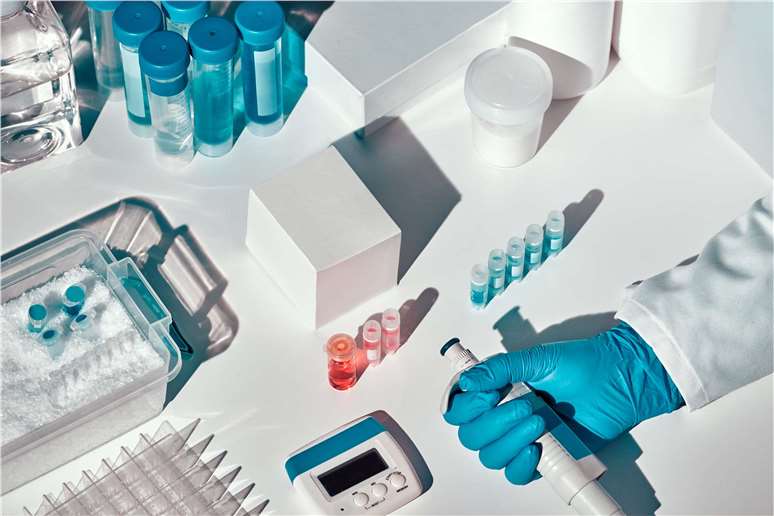Products
-
Tumor Cells
-
Human Tumor Cells
- Astrocytoma/Glioblastoma Cells
- Bladder (urinary) Tumor Cells
- Brain/Nerve Tumor Cells
- Breast Tumor Cells
- Colorectal Tumor Cells
- Esophageal Tumor Cells
- Gallbladder Tumor Cells
- Gastric Tumor Cells
- Human Hybridoma Cells
- Hepatoma Cells
- Kidney Tumor Cells
- Lung Tumor Cells
- Leukemia/Lymphoma/Myeloma Cells
- Melanoma Cells
- Mesothelioma Cells
- Nasopharyngeal Tumor Cells
- Oral Tumor Cells
- Ovarian Tumor Cells
- Prostate Tumor Cells
- Pancreatic Tumor Cells
- Retinoblastoma Cells
- Sarcoma Cells
- Skin Tumor Cells
- Testicular Tumor Cells
- Thyroid Tumor Cells
- Uterine/Cervix Tumor Cells
- Other Human Tumor Cells
- Animal Tumor Cells
- Drug Resistant Cells
- Tumor Cell Media
- Tumor Cell Panels
-
Human Tumor Cells
-
Primary Cell Research
-
Human Primary Cells
- Adipose Cells
- Bone Marrow Cells
- Bone Cells
- Bone and Cartilage Cells
- Blood Vessel Cells
- Bronchial/Tracheal Cells
- Brain Cells
- Bladder Cells
- Cardiac Cells
- Colon Cells
- Dermal Cells
- Epidermal Cells
- Esophagus Cells
- Female Reproductive Cells
- Gastrointestinal Cells
- Gallbladder Cells
- Hepatic Cells
- Hair Cells
- Keratinocytes
- Lymphatic Cells
- Male Reproductive Cells
- Mammary Cells
- Nervous Cells
- Ocular Cells
- Oral Cells
- Pancreatic Cells
- Peripheral Blood Mononuclear Cells
- Placenta Cells
- Prostate Cells
- Pulmonary Cells
- Reproductive System Cells
- Renal Cells
- Skeletal Cells
- Skin Cells
- Spleen Cells
- Thyroid Cells
- Tonsil Cells
- Umbilical Cord Cells
- Urethral Cells
- Other Human Primary Cells
- Animal Primary Cells
- Primary Cell Media
- Dissociated Tumor Cells (DTCs)
- Cell Isolation Kit
- Cytokines & Growth Factors
- ActoFactor™ GMP Cytokines
-
Human Primary Cells
- Immortalized Cell Research
- Stem Cell Research
- Exosome Research
-
ISH/FISH Probes
- CABR™ Chromosome Probes
- CABR™ Detection Probes
-
CABR™ Disease Biomarker FISH Probes
- Acute Lymphoblastic Leukemia FISH Probes
- Pancreatic Cancer FISH Probes
- Myeloproliferative Neoplasms FISH Probes
- Ovarian Cancer FISH Probes
- Melanoma FISH Probes
- Multiple Myeloma FISH Probes
- Myelodysplastic Syndrome FISH Probes
- Myeloid Neoplasms W Eosinophilia FISH Probes
- Follicular Lymphoma FISH Probes
- Lung Cancer FISH Probes
- Lymphoma FISH Probes
- Mantle Cell Lymphoma FISH Probes
- Colorectal Cancer FISH Probes
- Acute Myeloid Leukemia (AML) FISH Probes
- Acute Myelomonocytic Leukemia FISH Probes
- Acute Promyelocytic Leukemia FISH Probes
- Breast Cancer FISH Probes
- Burkitt Lymphoma FISH Probes
- Chronic Lymphocytic Leukemia FISH Probes
- CABR™ 2019 Novel Coronavirus Detection FISH Probe
- CABR™ CAR-T Cell Detection ISH Probes
- CABR™ Animal Probes
- Bacterial Probes
- CABR™ microRNA Probe
- ISH Probes
- Custom Probes
- IHC ISH Reagents
- Biosamples
- Cell Analysis Kit
- ADME Kits
- Stains & Dyes
- Nucleic Acid Extraction
MSC Validation Kits
Like all adult stem cells, MSC populations are found in small quantities in situ and are technically challenging to isolate from tissue. In addition, freshly harvested MSC populations may also contain other off-target cell types. Therefore, MSCs must be purified and expanded in vitro to reach a sufficient quantity for experimentation. This has to be done carefully as differentiation potential and genomic integrity begin to wane around 5-12 passages. Researchers can use phenotypic and functional assessments to assist in the successful purification and correct identification of MSC identity.

Creative Bioarray's MSC Validation Kit provides a quantitative solution for the unambiguous identification of MSC. The kit contains a panel of positive and negative selection markers and has been evaluated on a variety of different MSC culture types, such as adipose-derived MSCs, bone marrow-derived MSCs, and umbilical cord-derived MSCs, to ensure that MSC cultures from various types can be clearly monitored and characterized.
Our portfolio of validated MSC differentiation kit is optimized for differentiation into a variety of mesenchymal lineages. The collection includes media designed for the directed differentiation of MSCs into osteogenic, adipogenic, or chondrogenic lineages. For more information on how to differentiate MSCs, click here.
For research use only. Not for any other purpose.